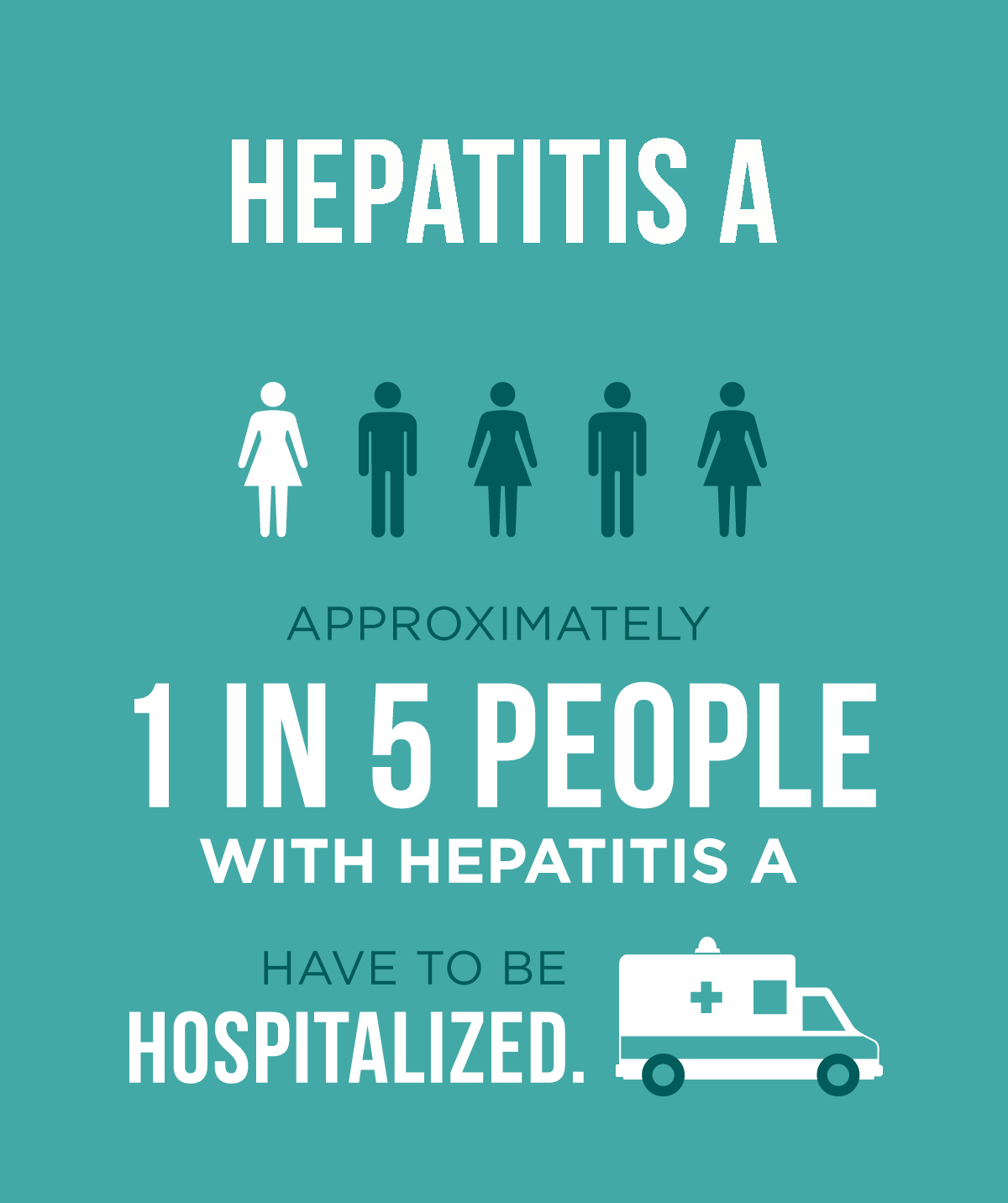Hepatitis A
What is hepatitis A?
Hepatitis A is a highly contagious liver infection caused by the hepatitis A virus. Sickness typically lasts a few weeks to several months. In rare cases, hepatitis A can lead to liver failure and even death.
On this page, you can explore how hepatitis A spreads, what the symptoms are, and how to prevent hepatitis A.
occur periodically through person-to-person transmission. Learn about outbreaks from hepatitis A here.
How is the Hepatitis A virus spread?
Hepatitis A is primarily spread through contact with an infected person or by touching objects, food, water, or drinks contaminated with the feces of someone who has the virus. Spread typically occurs when someone doesn’t wash their hands properly, after using the bathroom, changing diapers, and before preparing or eating food.
Contamination of drinking water can be a major source of hepatitis A outbreaks. This primarily happens in countries where there is poor water sanitation.

Anyone who hasn’t been vaccinated or previously infected is at risk of contracting hepatitis A. Certain life circumstances and behaviors also increase risk of infection. People at highest risk are international travelers or people who: have close contact with international travelers; who use or inject drugs; who have increased exposure from their jobs such as those who work with HAV in a lab; who are experiencing homelessness, who are men who have sex with men. People who have certain health conditions including HIV, chronic liver disease are more likely to experience severe complications from hepatitis A. Learn more about increased risk here.
If you’re planning to travel internationally to areas with high rates of hepatitis A infection, it’s important to consult your doctor about getting vaccinated against hepatitis A to reduce your risk. View the necessary vaccines recommended for your destination here .
Learn more about vaccines recommended for travelers, lifestyles and certain jobs.
Aside from contact with an infected person, contamination in drinking water is also a major source of Hepatitis A outbreaks.
What are the symptoms of hepatitis A?
Not everyone with hepatitis A shows symptoms, and adults are more likely to experience symptoms than children. If symptoms do develop, they typically appear 2 to 7 weeks after exposure and usually last less than 2 months, though some individuals may feel sick for up to 6 months.
Common symptoms include:
- Dark urine or clay-colored stools
- Diarrhea
- Fatigue
- Fever
- Joint pain
- Loss of appetite
- Nausea, stomach pain, and vomiting
- Yellowing of the skin or eyes (jaundice)

How can I prevent hepatitis A?

Babies and Children/Preteens and Teens
For the best, long-lasting protection against hepatitis A, the CDC recommends that all children get two doses of the hepatitis A vaccine (HepA) at age 12–23 months old. The second dose should be given at least 6 months after the first dose.
If not previously vaccinated, children 2–18 years old can get the HepA vaccine as a 2-dose series six months apart.

Adults
Adults, 19 years old and older, who haven’t been vaccinated and want protection against hepatitis A can receive the adult version of the vaccine as a 2-dose or 3-dose series. It is especially important for those at increased risk to prioritize getting vaccinated.
CDC Recommended Vaccination Schedules
To ensure that your entire family is up to date on their vaccines, check out the following CDC recommended immunization schedules and talk to your healthcare provider.


